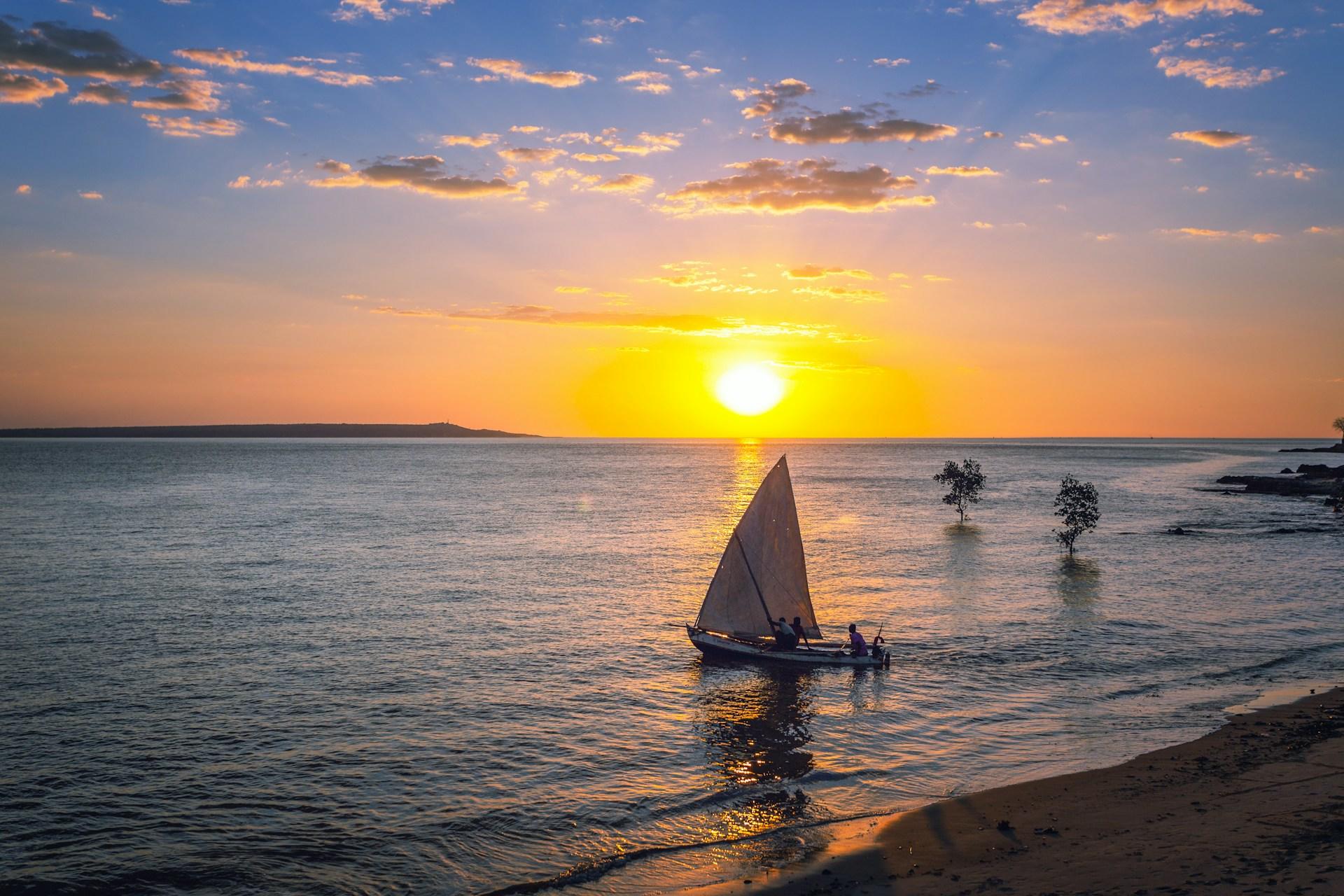The French language was once the world's lingua franca and spoken across Europe and around the world. The British Empire made English the world's lingua franca after that, but the influence of French colonisation is still evident across the French-speaking world and in the many island nations and territories that still speak the language.
The French Empire included so many island nations that covering them merited a dedicated article. Here are the French-speaking islands and territories across the world.

French-speaking Islands in Oceania
While many of France's colonies gained independence, many of France's Pacific islands are still territories of France. Vanuatu is the only one to have gained independence.
Vanuatu
Vanuatu became independent from France in the 20th century and still has French, English, and Bislama as its official languages. There are hundreds of native languages in Vanuatu, which is why Bislama, a mutually intelligible English-based pidgin language has official status.
French-speaking Countries in the Indian Ocean
Due to France's colonisation of Africa, many parts of the continent are still home to French speakers. While the French Empire mainly focused on West and Central Africa, parts of East Africa and islands in the neighbouring Indian Ocean were also part of the empire.
Madagascar
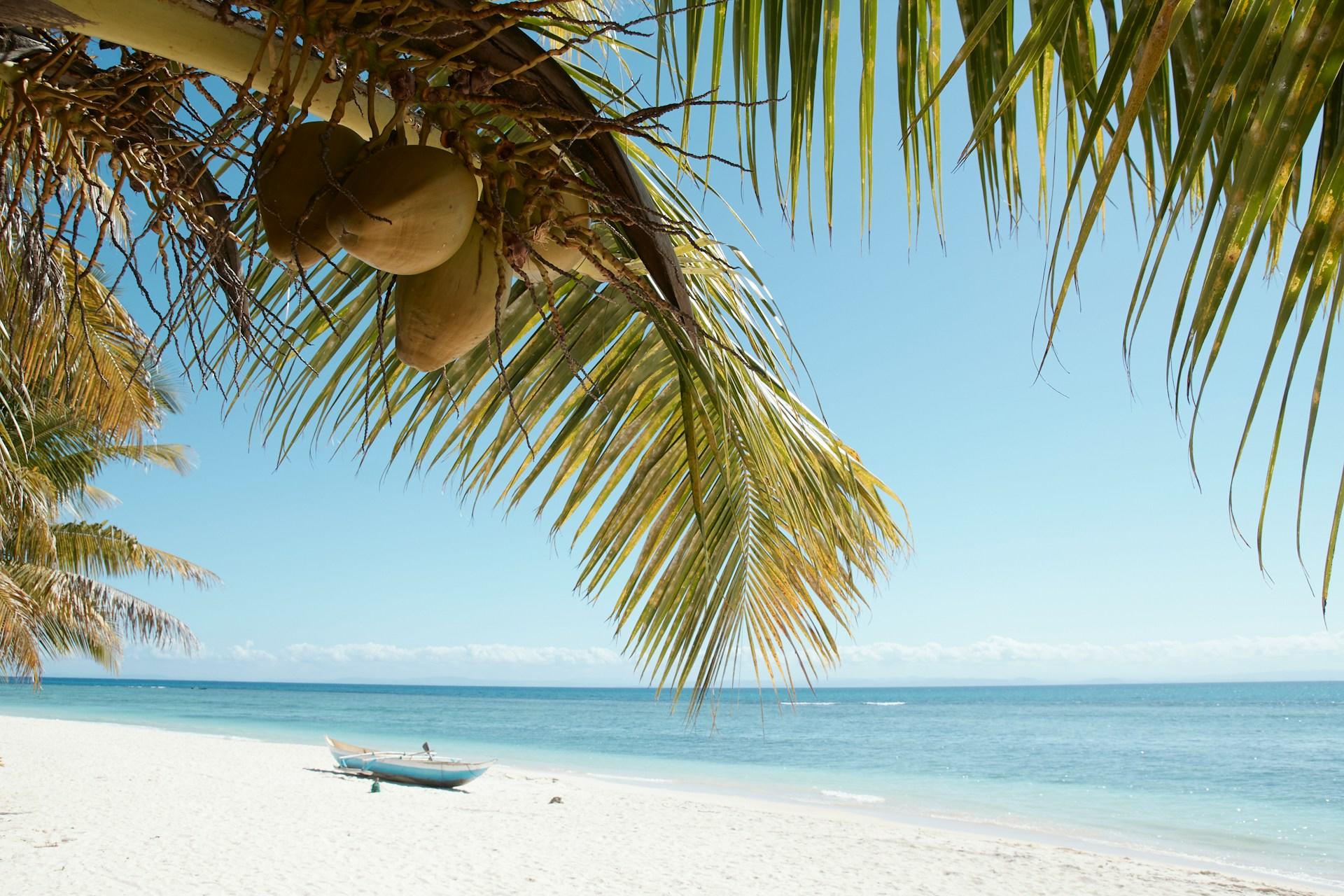
Madagascar was invaded by the French in 1883 and officially annexed in 1896. The Madagascan royal family was exiled to Réunion, an island next to Madagascar which remains part of France.
Madagascar became independent in 1960, a decade when many of France's colonies gained their independence.
Comoros
Comoros is an archipelago, which means it is a nation of several islands (like many island nations). It's located between Madagascar and Mozambique in continental Africa.
It was colonised by the French in 1841 and gained independence in 1975.
Mayotte, which was once part of Comoros, remained a French territory when Comoros declared independence in 1975.
Seychelles
Seychelles is another nation that's made up of many islands. 115 islands make up Seychelles, which recognises French, English, and Seychellois Creole as its official languages.
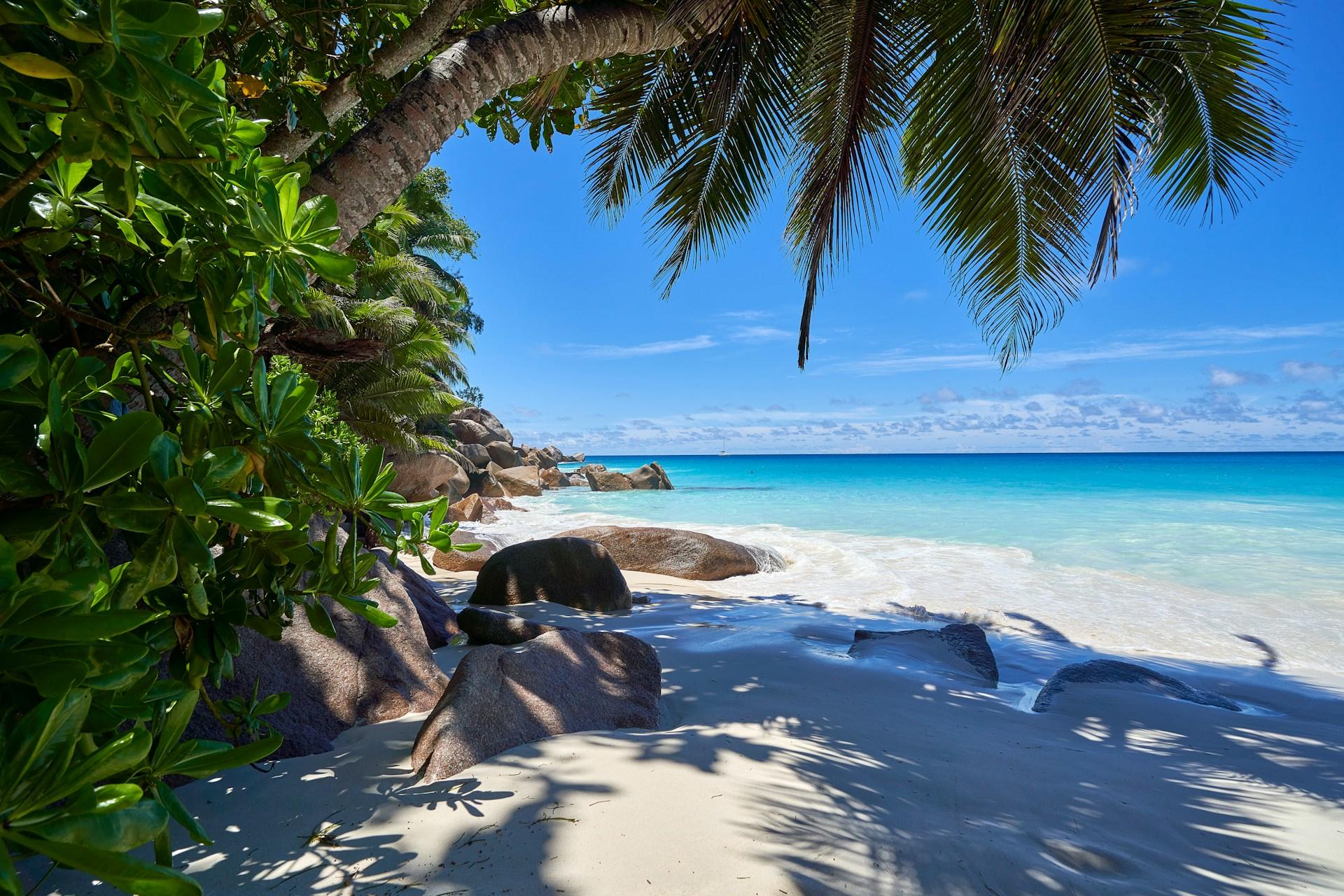
France claimed the islands in 1756 before the British Empire took them in 1794. At the end of the Napoleonic Wars, Seychelles was returned to the French.
In the late 18th century, Britain regained full control of the islands. Eventually, Seychelles gained its independence from the UK in 1976, with the English and French languages evidence of the nation's colonial past.

French-speaking Islands in the Caribbean
French colonial interests took the French language to the Caribbean. These areas were particularly sought after by European colonists for trading sugar, tobacco, coffee, cotton, rum, spices, timber, and slaves.
Haiti
Technically, Haiti is a sovereign nation on the island of Hispaniola. Sharing the island with the Dominican Republic, another sovereign nation, means that Haiti is mostly an island nation.
Spain initially colonised Hispaniola while the French settled on the west of the Island. The land was ceded to the French in 1625 and France began importing slaves to work on the sugar plantations.
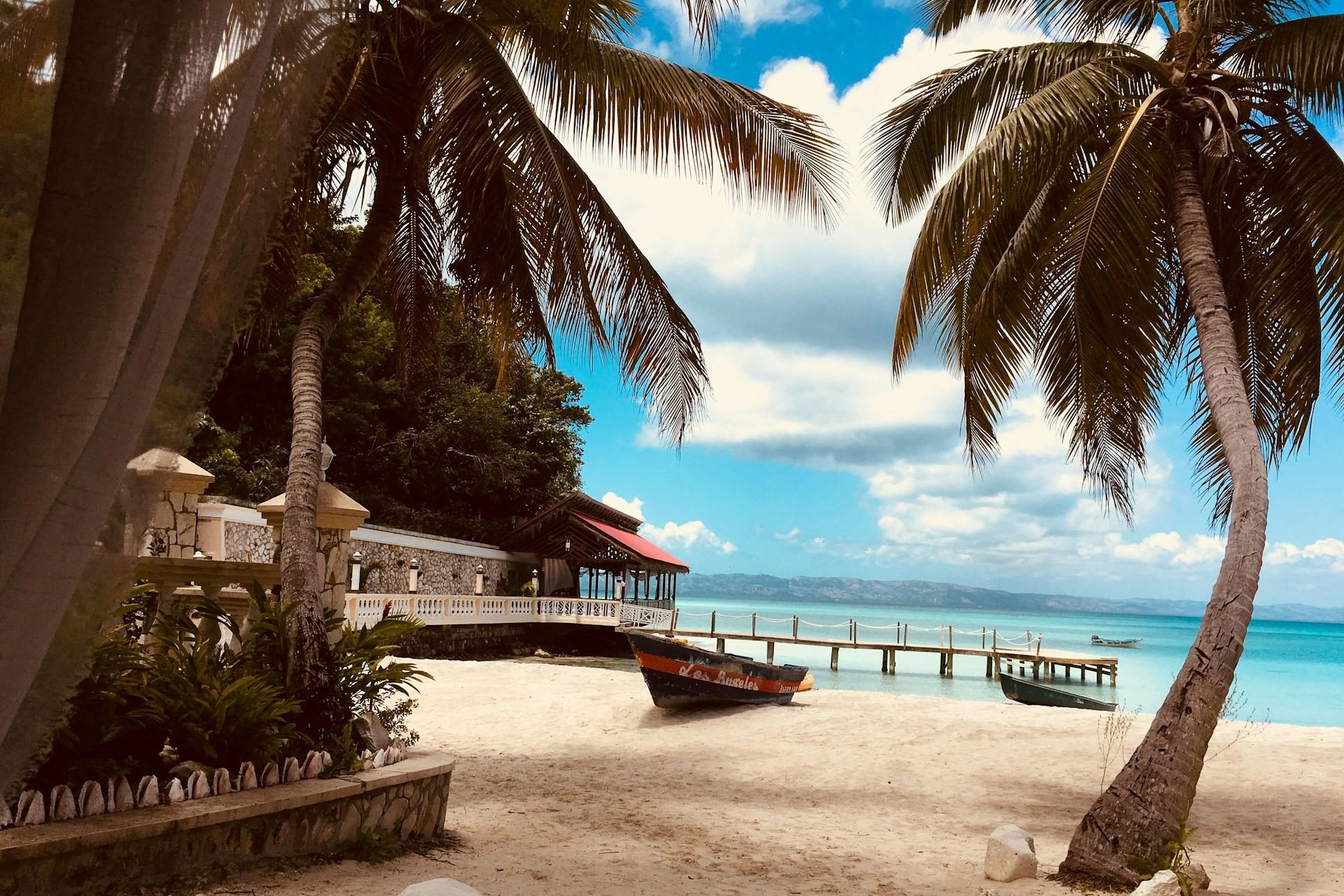
The Haitian Revolution began in 1791 and gained independence in 1804. It was the first nation in Latin America and the Caribbean to gain independence and the only to have done so following a successful slave rebellion.
The French Language in French Overseas Territories
The French Empire has left France with several territories all over the world. To differing degrees, these territories are administered by France.
Some of these territories are simply considered regions of France and operate in the same way as any other region in continental France. Others are somewhat autonomous.
Other than French Guiana, which is in continental South America, all of these territories are islands or archipelagos.
French Overseas Departments and Regions
The French départements et régions d'outre-mer (DROM) speak French as it holds the same official status as the rest of France.
All of France's overseas territories were collectively called DOM-TOM and the overseas departments were the DOM and the territories the TOM. Now, the DOM are known as the DROM and they have the same status as French departments.
The territories (TOM) were replaced with the COM (Overseas Collectivities) status.
The COM of St. Martin is part of the European Union (EU) but only the Atlantic COM use the Euro as their currency.
overseas departments and regions.
and overseas collectivities.
Overseas Departments (DOM)
The overseas French departments include:
- Réunion: An island off the coast of Madagascar
- Mayotte: Another island near Madagascar
- Guadeloupe: A Caribbean island
- Martinique: Another Caribbean Island
- French Guiana: Not an island. Located in the northeast of South America, between Suriname (to the West) and Brazil (to the South)
La Réunion
La Réunion or simply Réunion is an island in the Indian Ocean. As a French overseas department, it's part of France, despite being thousands of kilometres away from continental France.
Home to around 850,000 people, Réunion is a mix of Western African, Madagascan, Indian, Chinese, and European cultures. It still includes elements of French culture like cafés while also remaining African.
The island is home to a 3,000-metre-tall mountain despite being only 50km long. It's famous for its hiking trails.
Guadeloupe
Guadeloupe is in the Caribbean Sea with one of its coastlines on the Atlantic Ocean. It's home to 400,000 people whose official language is French.
The two main islands of Guadeloupe are Basse-Terre and Marie-Galant. The former is a volcanic island with forests and sandy beaches. Marie-Galant is smaller.
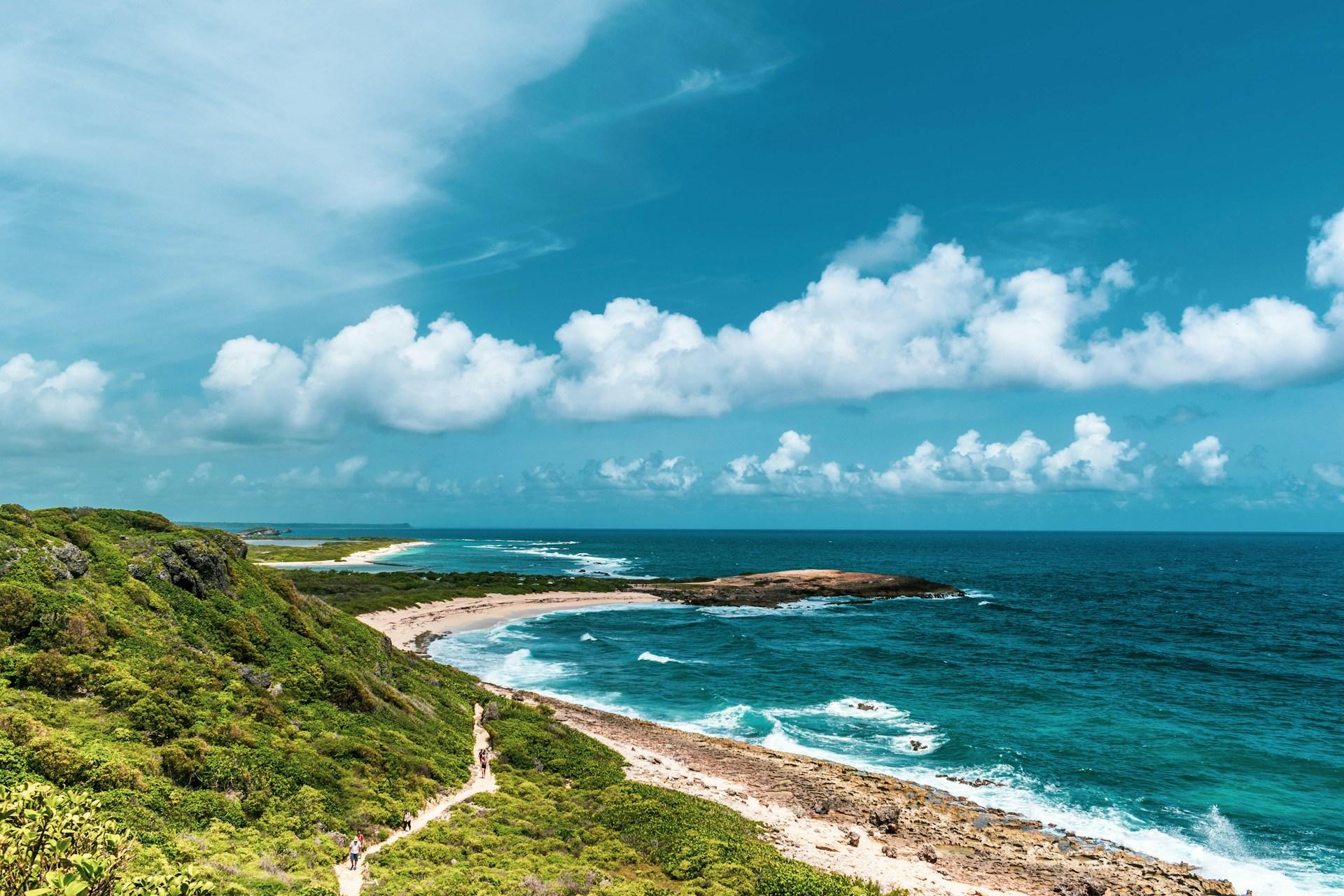
Martinique
Martinique is another French overseas department in the Caribbean. It's in the Lesser Antilles, a group of smaller Caribbean islands than the Greater Antilles.
Martinique is home to nearly 400,000 people and is known as the "Island of Flowers". 70km long and 30km wide, it's home to many beautiful hiking trails, but it's also a great place to learn French since the locals can speak French and the local Creole language.
Mayotte
Mayotte is an archipelago between Madagascar and Mozambique. It's in the Indian Ocean and another of France's overseas departments. Though once part of Comoros, Mayotte decided to remain with France after Comoros declared itself independent via a referendum in 1974.
The former capital of Dzaoudzi was also the capital of colonial Comoros. The capital is now Mamoudzou.

French Guiana
As we mentioned earlier, French Guyana is part of mainland South America so not an island. However, as one of the French overseas departments, we feel it deserves a mention.
Overseas Collectivities (formerly Territories)
The overseas collectivities or collectivités d’outre-mer have a different status to the DOM but do have French as an official language. The French overseas collectivities include:
- St.-Pierre-et-Miquelon: An archipelago off the coast of Canada
- St. Martin: A Caribbean island
- St. Barthélemy: An island in the Antilles
- New Caledonia: An Oceanic archipelago north of Australia
- Wallis and Futuna: An archipelago to the northeast of New Caledonia
- French Polynesia: A series of 118 islands in the Pacific
There's also Clipperton Island, which is considered the most isolated place in the world. This island is uninhabited but since it belongs to France, it technically has French as its official language, despite having nobody there to speak it.
To join the large group of French speakers, consider having a private tutor to help you learn French. You could take French classes in Melbourne or wherever you live either in-person or online.
Learn French with Superprof
If you want to improve your French, or learn more about France and French history, why not do it with a private tutor?
As you've seen, you could find French speakers all over the world including in France, across many French-speaking independent nations or in French overseas territories and collectivities.
On the Superprof website, you can find face-to-face or online tutoring.
While a face-to-face tutor can come to you to teach you French, they'll likely charge more than their online counterparts simply due to travel costs and the time it takes to get to each of their lessons.
Online tutors can offer cheaper tutoring since they don't have to travel to their students and have more time to schedule sessions. With online tutors, you could learn from tutors from any French-speaking part of the world.
For students on a budget, you can make lessons cheaper by either learning in groups with friends or family members, splitting the cost. You can also join tutoring groups and learn with strangers, which also works out as cheaper than one-on-one tutoring.
Naturally, group tutoring doesn't come with all the benefits that learning one-on-one does. After all, group tutoring doesn't allow the tutor to tailor their sessions to the individual.
Think carefully about which would work best for you and your budget and then start searching for and shortlisting potential tutors. Many of the tutors on the Superprof website offer the first session for free so you can try a lesson from a few different tutors before making your decision.
Begin your French lessons Sydney today on Superprof!
Summarise with AI:

